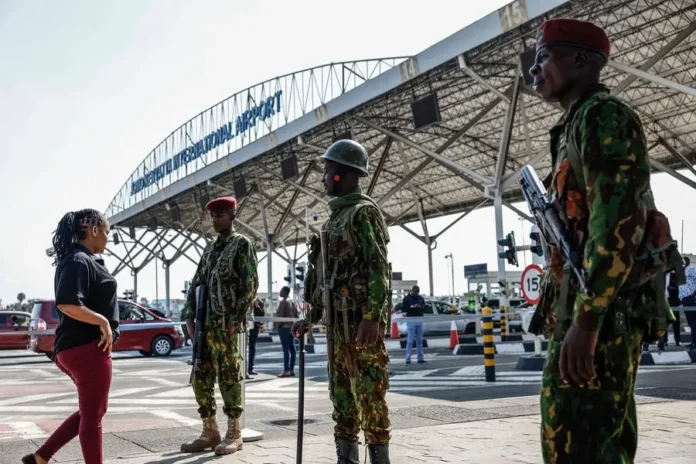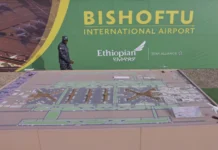The Kenya Aviation Workers Union (KAWU) has announced the postponement of its planned industrial strike, originally set for August 19, to facilitate discussions with the government.
KAWU Secretary General Moss Ndiema confirmed the decision after talks with Labor Cabinet Secretary Alfred Mutua, emphasizing the need for dialogue over the future of Jomo Kenyatta International Airport (JKIA).
In a statement made on Saturday, Ndiema noted, “After lengthy deliberations, we have agreed to delay our strike action for two weeks.” The union had expressed its concerns about the potential negative impact of the Adani deal on the employment and welfare of over 1,000 workers represented by KAWU.
The Sh246 billion agreement with Adani Airports Holdings involves upgrading JKIA, which is currently facing capacity challenges.
The proposed plan includes constructing a second runway and a new passenger terminal, with a build-operate-transfer (BOT) arrangement lasting 30 years. The government has stressed that these upgrades are critical, as JKIA is already operating beyond its annual capacity of 7.5 million passengers.
Transport Cabinet Secretary David Chirchir defended the deal in a recent Parliamentary vetting session, stating,
“If we can’t do it as the government, can we allow a private sector player to do it at a reasonable cost and return on investment?”
However, KAWU remains skeptical, questioning why the Kenya Airports Authority (KAA), a profitable entity, is pursuing a public-private partnership instead of managing airport renovations in-house.
Ndiema highlighted concerns over job security, suggesting that workers may be forced to reapply for their positions under potentially worse conditions.
As discussions continue, the KAWU is resolute in its stance against the deal, asserting that the refurbishment and management of JKIA should be the responsibility of KAA, without external intervention from private entities like Adani Airports.
The union’s leadership calls for transparent dialogue to ensure that workers’ rights and employment terms are protected.



















